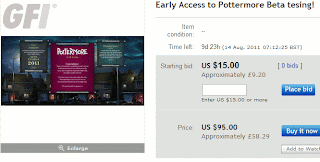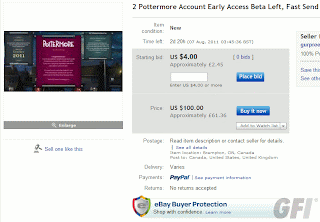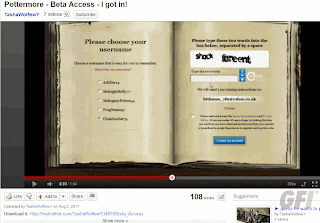Now that I have Harry Potter fans foaming at the mouth for randomly mashing up two unrelated spells to express the intent of this blog entry, I’ll continue.
Pottermore is – help me out here, Wikipedia – a site that will sell eBooks of the Harry Potter novels, provide over 18,000 words of additional content including background details and settings and “experience” the events of the books first hand. All I know is, lots of Harry Potter fans are excited.
Access is currently limited for the Beta, and of course this means ole’ lightning forehead has become a prime target for scams and people wanting to turn a quick profit. Things you should be keeping an eye out for, and running away from:
Go throwing your cash around on “myfakewebsite(dot)whatever” and you may be in a little more trouble.
2) Videos on Youtube. I guess if someone is willing to pay up to $100 for Beta access that may not even exist, they’d certainly be willing to walk right into this “Old as the hills” favourite:
“Beta access” available for “Download”. At the risk of making like Nostradamus, I wonder if we’ll see a survey?
A big hand for the most tiresome scam in history, everybody!
The individual who sent you there will (of course) make some affiliate money should you fill in a survey or enter a competition – meanwhile, after handing over your data to some random marketers you’ll be “blessed” with a download which typically turns out to be A) Nothing, or B) Malware.
3) Malware and poisoned search results. Another obvious one, but even so here’s a random example found after a few minutes digging around:





